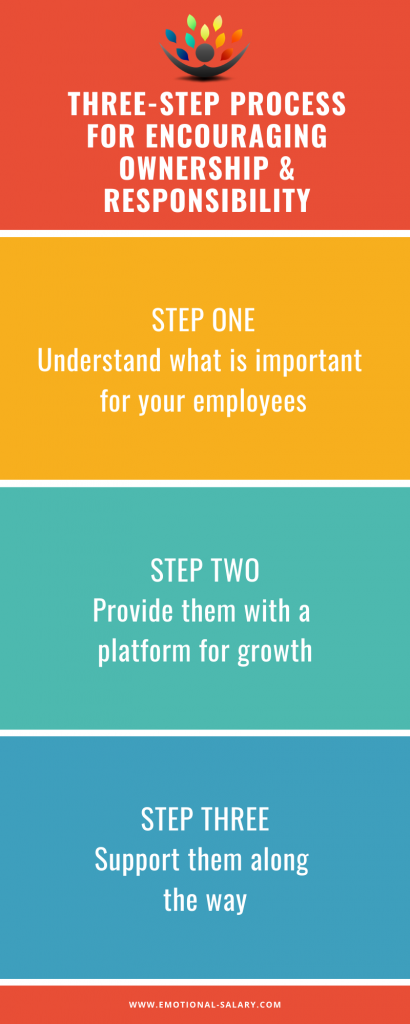In this blog we’ll look at what senior business leaders consider to be the “skills gap” we need to plug in order to overcome the challenges we are facing from the current situation and the future of work, and what this might mean for business results. We will also share with you our 3-step process to plug this gap.

“Mind the gap”
Now many of us are starting to think about life post-Covid19, we are asking ourselves the essential question, what will our work look like in the future? One of the things that the current situation has done is accelerate the progress of many organisations in remote working or new ways of working. Adaptability and flexibility have been essential traits that people and organisations have had to demonstrate to survive. We’ve known for some time that the future of work will necessitate new ways of working together with a much greater reliance on technology and AI, but the speed of change we’ve seen in the current situation has somehow made that future seem much closer.
In the conversations we’ve been having recently with senior leaders, and HR and Learning professionals, we’ve been asking them two questions:
(1) What do they consider to be the key skills their employees will need to face the future of work?;
(2) What is the skills gap between their star performers and their average employees?.
Unsurprisingly, we started to see a pattern, which, thankfully, fully aligned with what has been our belief for some time.
The key skill that exists in star performers and what managers and organisations want and need from all their employees is not really a skill at all, but rather a combination of attitude, skills and behaviour: that is to step up and take ownership and responsibility. One thing from our conversations was clear: to recover from the current situation and face the challenges in the future of work generally, this “skills gap” will need to be filled.
So, what exactly does this mean? What these leaders are talking about is not just proactivity. They want employees to act like they are true stakeholders in the business, to think about how processes and procedures can be improved, how clients can be served better, how teams can work more effectively, and to drive change within the organisation.
 Why are ownership and responsibility so important and what are the challenges?
Why are ownership and responsibility so important and what are the challenges?
The type of ownership and responsibility we are talking about here drives real business success. One of the senior leaders we talked to described it as akin to agility and that the only way to have that agility within their business was to encourage it within all their employees. To encourage them to be able to adapt quickly, to have constant communication and collaboration and to be able to see their role within the whole project and within the organisation. This completely aligns with our way of thinking – we genuinely believe that employees are at the centre of any organisation in order for the company to survive and thrive in the future.
When employees are taking ownership and responsibility they can become “true stakeholders of their own future and the company’s future”. According to research by Gallup, this type of behaviour has a dramatic impact on business results:
- Profits increase by 21%
- Productivity increases by 17%
- Sales increase by 20%
- Absenteeism decreases by 41%
Results are always important, but when we take into account the challenges which the majority of businesses are currently facing, and will continue to face in the next 12-24 months and beyond, these numbers could be the difference between an organisation collapsing, surviving or thriving.
One of the direct results of employees taking ownership and responsibility is the recognition by employees of how they need to adjust and develop to continue to be of value to the organisation. An example of this is adaptability and flexibility, both of which are key skills that have been essential in the current situation and which will continue to be key in coping with the challenges the future of work is likely to bring.
However, fostering ownership and responsibility amongst employees is not without its challenges. The main problem with this is, as we have already mentioned, it is not just a skill, but rather a collection of attitude, behaviour, and skills. It also needs to come from all parties involved – employees, leaders and the organisation as a whole. The organisation needs to provide a platform that facilitates communication, listening and empowerment of employees.
You have heard the expression ‘with power comes responsibility’, well the opposite is also true, and with ownership and responsibility comes a certain amount of power. The reality is that some teams or organisations are not prepared for their employees to take responsibility and ownership because they don’t want them to have the power. This is completely misguided, because it is only through harnessing the power of their employees that organisations can achieve their full potential. The key question here would be: Is your organisation supporting this responsibility?
“It’s not about telling or directing, but supporting and being of service to your team”
Linked to this idea is the fact that if we want employees to take ownership and responsibility, the management style and the overall organisational culture will need to support this. What this means is that there will be no room for micromanagement. In the words of one of the senior leaders we spoke to, “It’s not about telling or directing, but supporting and being of service to your team”.
If we are to move to a situation where taking ownership and responsibility is the norm, then we probably need to get much better at communicating, and in particular, listening. We cannot expect this to happen unless the culture within the team or the organisation supports this.
Three-Step Process for Encouraging Ownership & Responsibility

- The first step in the process is to provide a way for your employees to recognise that responsibility is a two-way street. One of the most effective ways to do this is to demonstrate that they are valued and empowered by the organisation and recognise the important role that they play in helping the organisation achieve its goals. It is essential that they take charge of their working life by firstly gaining an awareness of the value they get from working, what is important for them at work and how they can take responsibility for getting more of what they value most. The Emotional Salary Barometer is a tool that does exactly this.
- The next step is for the team leader/organisation to understand exactly what their employees perceive is emotionally important to them and provide a platform of opportunities for them to take action to get more of this. In other words, supporting them to achieve their goals in alignment with the team and organisation’s goals. That could mean looking at and taking action as a result of insights from employee surveys or undertaking an Emotional Salary audit.
- The final step is for both parties to take continuous action to ensure that it becomes inherent in the culture. This could include change practices, articulation of the aspiration, leadership alignment, organisational conversation and organisational design. This means, ensuring processes, policies and procedures support the taking of ownership and responsibility, ensuring it is recognised and valued and making sure the leadership of the organisation walks the talk.
So, the real “skills gap” is actually a combination of attitude, behaviour and skills that leads to employees taking ownership and responsibility and becoming a true stakeholder of their own and the company’s future. Plugging that gap is fundamental to ensure that we can face the challenges brought by the current situation and the future of work, but it is not without its challenges. Our Three Step process is a great starting point to look at how teams and organisations can ensure they are prepared for the future.
Returning to work post-Covid19 is a great opportunity for us to review what we have learned from the situation and start to face the future as we mean to go on. We are in the final stages of designing a step-by-step process for teams to implement on their return to work to ensure that the learnings from the current situation are captured and that the team can identify its desired future and the action needed to make it a reality. If you’d like us to send it to you, or would like to talk about how our Emotional Salary Barometer can help your team or organisation thrive, then don’t hesitate to get in touch.